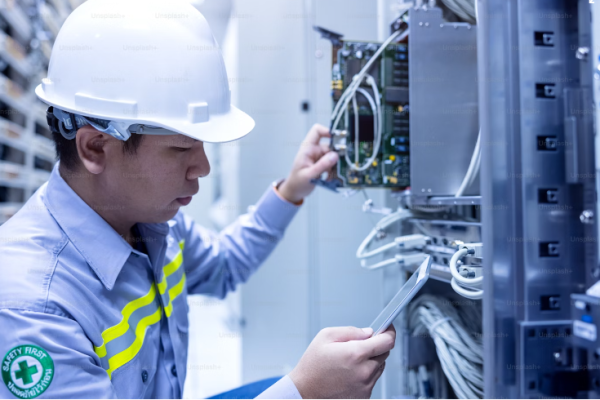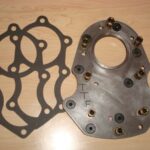Introduction to the Allis Troubleshooting Guide
If you own 70537865 Allis equipment, you know how valuable it is for your operations. But what happens when things don’t go as planned? Troubleshooting can be daunting, especially if you’re not sure where to start. Whether it’s unexpected noises or performance issues, the last thing you want is downtime affecting your productivity.
This guide aims to empower you with essential knowledge and practical steps to diagnose and resolve common problems with your Allis machinery. You’ll find tips on maintenance that will help keep your equipment in peak condition, ensuring it runs smoothly for years to come. Let’s dive into the world of 70537865 Allis troubleshooting together!
Common Issues with 70537865 Allis
When working with the 70537865 Allis equipment, various issues can arise. One common problem is electrical failure. This may manifest as machinery not starting or random shutdowns during operation.
Another frequent concern involves hydraulic leaks. These can lead to reduced efficiency and increased wear on components if left unaddressed.
Additionally, engine overheating often plagues users of this model. Ignoring temperature warnings can be detrimental to performance and longevity.
Unusual noises are also a red flag; they might indicate mechanical issues that require immediate attention.
Clogged filters may cause operational hiccups, leading to poor performance and potential damage over time. Identifying these problems early is crucial for maintaining your equipment’s health.
Steps to Diagnose and Fix Problems
Start by gathering the necessary tools. A multimeter, basic hand tools, and a manual for your 70537865 Allis will be essential.
Next, observe any warning signs. Are there unusual noises or performance drops? Document these issues to help pinpoint the problem later.
Check all connections and wiring first. Loose or damaged wires can disrupt functionality. Ensure everything is secure.
If electrical components are involved, use the multimeter to test voltage levels. This will help identify faulty parts within circuits.
Inspect fluid levels as well; low oil or coolant can lead to significant problems. Top off if needed before proceeding further.
For mechanical issues, visually examine belts and gears for wear. Replace any worn-out parts promptly to avoid further damage.
Follow troubleshooting steps in your manual closely. They often provide specific guidance tailored for common issues related to the 70537865 model.
When to Call a Professional Technician
Sometimes, troubleshooting 70537865 Allis equipment can become overwhelming. If you’ve tried basic fixes without success, it might be time to call in a pro.
Watch for signs that indicate more serious issues. Unusual noises, persistent error codes, or sudden drops in performance may signal deeper problems requiring expert attention. Ignoring these signs could lead to further damage down the line.
If you’re unsure about your skills or lack the right tools, professional technicians come equipped with both knowledge and experience. They can diagnose complex systems efficiently and provide reliable solutions.
Don’t forget about safety; working on heavy machinery poses risks. When in doubt, prioritize your well-being by seeking help from trained professionals who understand the nuances of Allis equipment maintenance and repair.
Maintenance Tips for Avoiding Future Problems
Regular maintenance is critical for the longevity of your 70537865 Allis equipment. Start by following the manufacturer’s service schedule closely. This ensures that you address potential issues before they escalate.
Keep an eye on fluid levels, including oil and coolant. Low fluids can lead to overheating or engine damage over time.
Inspect belts and hoses frequently for signs of wear or cracking. Replacing these components early can save you from more significant repairs down the line.
Cleaning your equipment after use helps prevent dirt buildup, which can obstruct moving parts and cause malfunctions.
Don’t forget about battery care either; check connections regularly to ensure optimal performance.
Invest in quality parts when replacements are necessary. Using genuine or high-quality aftermarket components will help maintain efficiency and reliability in your machinery.
How to Extend the Lifespan of Your Allis Equipment
To extend the lifespan of your 70537865 Allis equipment, regular maintenance is crucial. Clean it frequently to prevent dirt and grime buildup. A simple rinse can do wonders.
Check fluid levels consistently. Adequate oil and coolant are essential for optimal performance. Low levels can lead to overheating or mechanical failure.
Examine belts and hoses for wear and tear. Replacing them at the first sign of damage will help avoid more extensive repairs later on.
Using quality parts during replacements also matters significantly. Cheaper alternatives may save money now but could cost you dearly in the long run.
Follow recommended operating guidelines meticulously. Overloading or misusing your equipment accelerates wear, reducing its overall life expectancy significantly. Prioritizing these practices helps keep your Allis machinery running smoothly for years to come.
Conclusion: Keeping Your Allis Running Smoothly
Regular maintenance is essential for your 70537865 Allis equipment. By staying ahead of potential issues, you can avoid costly repairs down the line.
Create a routine that includes checking fluid levels, inspecting belts and hoses, and cleaning filters. A little time spent on maintenance goes a long way in preserving performance.
Listen to your machine. Unusual sounds or vibrations often indicate underlying problems that need attention. Addressing these early can prevent bigger headaches later.
Invest in quality parts when replacements are necessary. This ensures compatibility and durability, extending the life of your Allis equipment significantly.
Keep track of service history and any troubleshooting steps you’ve taken. This record will help technicians diagnose future issues more efficiently if needed.
faqs
Troubleshooting 70537865 Allis: A Complete Guide
Introduction to the Allis Troubleshooting Guide
Allis equipment plays a significant role in various industries, ensuring smooth operations and high productivity. However, like any machinery, it may encounter issues over time. The 70537865 model is no exception. This guide aims to assist you in identifying common problems and provides practical solutions for troubleshooting.
Common Issues with 70537865 Allis
The most frequent problems faced by users of the 70537865 Allis include engine starting difficulties, hydraulic system malfunctions, and electrical failures. These issues can stem from several sources such as wear and tear or improper maintenance practices.
Steps to Diagnose and Fix Problems
Start by observing any warning lights or unusual sounds during operation. Check fluid levels regularly; low oil or coolant can lead to severe complications. For hydraulic problems, inspect hoses for leaks or blockages. Electrical issues often require checking fuses and wiring connections before assuming more substantial faults exist.
When to Call a Professional Technician
If your efforts yield no results after thorough troubleshooting, it might be time to seek professional help. Complicated repairs involving internal components or electronic systems are best handled by trained technicians who have access to specialized tools.
Maintenance Tips for Avoiding Future Problems
Regular upkeep significantly reduces the risk of future breakdowns on your 70537865 Allis equipment. Follow a strict schedule for oil changes and filter replacements according to manufacturer recommendations. Always keep an eye out for worn parts that need replacing before they cause severe damage.
How to Extend the Lifespan of Your Allis Equipment
To maximize longevity, ensure proper storage when not in use—protecting against weather elements helps prevent rust and deterioration. Additionally, familiarize yourself with operational limits; avoid overloading beyond specified capacities which could strain critical components over time.
Keeping Your Allis Running Smoothly
By taking proactive steps towards maintenance while understanding potential challenges upfront ensures optimal performance throughout its lifespan without unexpected interruptions disrupting workflow efficiency.
FAQs






